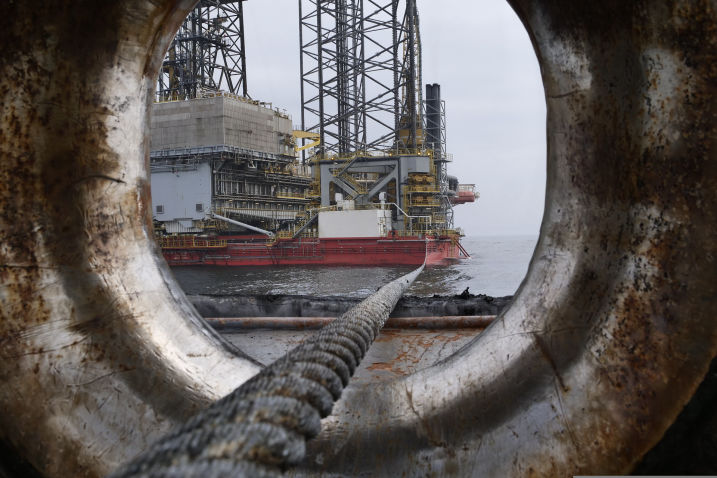Risk Assessment and Crisis Management for the Energy Sector
At EPConsult Energies (EP), we specialise in providing critical infrastructure resilience services that help protect the operational continuity of essential energy systems across the global energy sector. Our tailored solutions support government bodies and energy operators worldwide in identifying, assessing, mitigating, and responding to a wide range of physical, digital, and systemic threats using advanced risk engineering and regulatory expertise.
What Is Critical Infrastructure Resilience?
Critical infrastructure resilience refers to the capacity of energy systems—such as power stations, pipelines, offshore platforms, and renewable energy assets—to withstand, adapt to, and recover rapidly from disruptions. These may include natural hazards, cyber-attacks, civil unrest, or technical failures. At EP, our infrastructure resilience consultancy integrates risk engineering methodologies with regulatory expertise to ensure your infrastructure remains robust and operational during major accident hazards (MAHs) and emergency scenarios.

Beneath the ocean's surface lies one of the world's most critical (and vulnerable) communication lifelines: subsea fibre-optic cables.
Carrying over 95% of international data, these networks are the invisible foundation of global finance, diplomacy, and defence.
Our Core Critical Infrastructure Services
Crisis Management Planning
Developing crisis management plans (CMPs) tailored to the energy sector
We prepare comprehensive crisis management plans to ensure rapid, coordinated responses to incidents including, but not limited to:
- Natural disasters (floods, earthquakes, storms)
- Cyber security breaches and cyber-attacks
- Civil unrest and geopolitical events
- Industrial accidents and equipment failure
- Pandemic scenarios and systemic shutdowns
A robust CMP helps prevent cascading failures and supports faster restoration of critical services, whilst maintaining public confidence and regulatory compliance. Our crisis management specialists design tiered response strategies that integrate seamlessly with existing emergency protocols.
Infrastructure Vulnerability Assessments
Engineering-based evaluations of asset integrity using multi-criteria risk models
Our infrastructure vulnerability assessment services examine the resilience of physical and digital infrastructure. Using advanced multi-criteria risk models and risk-based methodologies, we assess vulnerabilities in:
- Energy production assets (oil, gas, wind, solar, hydrogen, fuel cell technologies)
- Transmission networks, pipelines, and subsea cabling
- Control systems and digital infrastructure
- Emergency power and safety systems
- Communication networks and monitoring systems
Each vulnerability assessment aligns with industry standards and regulatory frameworks to prioritise infrastructure investments and enhance system integrity against potential threats.
Risk Assessment and Resilience Evaluation
Quantitative and qualitative risk analysis for infrastructure operators
We identify and evaluate risks across your operations through systematic enterprise risk management (ERM) integration:
- Threat mapping: Natural disasters, technological failures, and human factors
- Impact analysis: Consequence modelling for operational, safety, and environmental scenarios
- Risk prioritisation: Targeted mitigation strategies based on severity and likelihood
- Emergency procedure evaluation: Assessment of existing response capabilities
Our approach ensures resilience is embedded into your organisation's operational planning and risk governance, providing transparent prioritisation of infrastructure investments with quantitative support for decision-making.
Redundancy and Resilience Planning
Engineering continuity into critical systems with backup mechanisms
We provide strategic support to incorporate redundancy into essential infrastructure systems. Our resilience planning services include:
- Design of backup power supply and communications systems
- Real-time monitoring and early warning alert mechanisms
- Emergency egress and evacuation route design
- Data protection and recovery strategies
- Fire suppression and safety system redundancy
- System hardening and protective measures
These measures address potential single points of failure, contributing to the overall resilience and operational continuity of energy systems through comprehensive fail-safe protocols.
Emergency Response Integration
Aligning resilience planning with operational response systems
Our consultants ensure that infrastructure risk assessments are fully integrated into:
- Emergency Response Plans (ERP)
- Business Continuity Plans (BCP)
- Crisis Management Plans (CMP)
This integrated approach enhances organisational readiness and provides structured, tiered responses under the most severe scenarios. We ensure seamless coordination between assessment findings and emergency management protocols.
Critical Equipment Classification
Systematic classification and prioritisation of key assets
We employ systematic methodologies for classifying critical infrastructure components based on:
- Functional importance: Role in overall system operation
- Recovery Time Objectives (RTOs): Target restoration timeframes
- Risk exposure: Likelihood and consequence of failure
- Operational criticality: Impact on service delivery
This enables targeted inspections, optimised maintenance cycles, strategic capital allocation, and preventive maintenance scheduling that maximises infrastructure reliability.
Interdependency Analysis
Identifying systemic vulnerabilities and cascading risks
Our interdependency analysis examines complex system relationships and identifies single points of failure:
- Dependencies between offshore platforms and onshore response centres
- Relationships within control and communication networks
- Vulnerabilities across energy, transport, and logistics supply chains
- Coordination requirements between emergency power and operational systems
By identifying weak links and interdependencies, we enable pre-emptive measures to prevent widespread infrastructure failure and develop coordinated response strategies.
Infrastructure Resilience Training Courses
Professional training for risk, safety, and emergency planning teams
We deliver tailored critical infrastructure training courses covering:
- Threat identification: Assessment methodologies and risk prioritisation techniques
- Resilience metrics: Performance indicators and measurement frameworks
- Regulatory compliance: Industry standards and framework requirements
- Practical applications: Case studies and scenario-based exercises
- Interdependency mapping: System analysis and vulnerability assessment
Courses are designed for engineers, planners, risk managers, emergency management professionals, and infrastructure operators seeking to enhance their crisis preparedness capabilities.

Our Systematic Approach
Our systematic, data-driven methodology is tailored to the sector's regulatory and operational context. Supported by our proprietary EPRisk software platform, we integrate infrastructure assessments into broader enterprise risk management strategies, providing:
- Transparent prioritisation of infrastructure investments
- Quantitative support for decision-making
- A continuous loop of assessment, mitigation, and performance monitoring
- Regulatory compliance and audit trail documentation
Sector Expertise and Industry Experience
EPConsult Energies supports public and private sector clients across multiple critical infrastructure sectors:
Energy Infrastructure:
- Oil & Gas (onshore, offshore, midstream operations)
- Renewable Energy (solar, wind, hydrogen, fuel cell technologies)
- Power generation facilities and transmission infrastructure
- Pipelines, electrical grids, and subsea cables
Essential Services:
- Utilities and water treatment facilities
- Telecommunications and communication networks
- Waste management and environmental services
- Ports, terminals, and maritime infrastructure
Government and Emergency Services:
- Government departments and regulatory agencies
- Emergency response and crisis management agencies
- National infrastructure protection authorities
Our methods combine engineering rigour with operational practicality, providing actionable insights without disrupting business continuity. We work discreetly and pragmatically, delivering scalable risk management strategies without compromising operational security.
Why Choose EPConsult Energies for Critical Infrastructure Resilience?
Our proven track record spans decades of advisory support for critical infrastructure across the energy value chain. We combine risk-based methodologies, sector expertise, and digital tools to deliver bespoke solutions that:
- Strengthen infrastructure resilience against multiple threat scenarios
- Ensure regulatory compliance with industry standards and frameworks
- Support strategic decision-making with data-driven insights and quantitative analysis
- Enable rapid response and recovery during crisis situations and emergency scenarios
- Provide continuous improvement through ongoing assessment and performance monitoring
Whether you operate critical energy infrastructure, lead a government department responsible for national infrastructure protection, or manage essential services, our expert team delivers comprehensive solutions that strengthen resilience across your operations.
Ready to Strengthen Your Infrastructure Resilience?
Whether you're responsible for safeguarding energy networks or coordinating national infrastructure planning, our engineers and risk experts are ready to help.
Get in touch with EPConsult Energies to build resilience into your infrastructure - before it’s tested.
Frequently Asked Questions About Critical Infrastructure Resilience
How often should infrastructure vulnerability assessments be conducted?
We recommend annual comprehensive vulnerability assessments, with interim assessments after significant operational changes, new threat emergence, or following major incidents that could affect system vulnerabilities.
What distinguishes crisis management planning from emergency response planning?
Crisis management focuses on strategic decisions, leadership structures, and coordination frameworks, whilst emergency response addresses immediate, tactical actions and operational procedures during incidents.
Which sectors benefit most from critical infrastructure resilience services?
Energy operators, utilities, transportation networks, telecommunications providers, and government agencies all benefit from structured, risk-based resilience strategies that protect essential services and maintain operational continuity.
How does interdependency analysis improve infrastructure protection?
Interdependency analysis identifies how different systems rely on each other, revealing single points of failure and cascade risks that might not be apparent when examining systems in isolation, enabling more comprehensive protection strategies.








